Health Informatics Invited Speaker Series
The Invited Speaker Series is an extension of our Health Informatics Grand Rounds. In this series, top informaticians from around the country will share their current research with the University of Minnesota informatics community. This series is open to the public and streamed live. Recordings of the event can be found linked below.
The series will generally be on Thursdays from 3:30-4:30, but dates and times may vary.
-
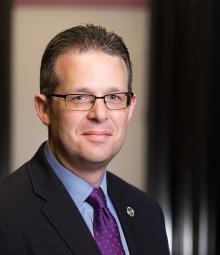 Philip R.O. PaynePhD, FACMI, FAMIA, FAIMBE, FIAHSI
Philip R.O. PaynePhD, FACMI, FAMIA, FAIMBE, FIAHSI
Washington University in St. Louis,
Institute for Informatics (I2)
A Learning Health System (LHS) can be defined as an environment in which knowledge generation is embedded into daily clinical practice in order to continually improve the quality, safety, and outcomes of healthcare delivery. While still an aspirational goal for most organizations, the promise of the LHS is a future in which every patient encounter is an opportunity to learn and improve that patient’s care, as well as the care their family and broader community receives. The foundation for building such an LHS can and should be the Electronic Health Record (EHR), which provides the basis for the deep and systematic phenotyping of patients and populations. Such EHR-derived data can be further enhanced with a variety of complementary and multi-scale sources, spanning a spectrum from genomics to imaging to patient-generated behavioral and environmental measures. In this presentation, we will explore the promise of such multi-scale phenotyping, from the perspective of both hypothesis generation as well the delivery of individualized decision-support in the clinical environment. We will use a set of examples drawn from efforts at Washington University and BJC Healthcare that target the provision of precision-diagnostics in the context of Neurofibromatosis Type 1 (NF1), an autosomal-dominant genetic disorder with an incidence of approximately 1 in 3000 individuals. Our focus on NF1 provides a generalizable test-case for such precision approaches to diagnosis, sub-phenotyping, and decision support, due to the heterogeneity and complexity of the disease and its presentation.
About the speaker: Dr. Payne is the Janet and Bernard Becker Professor and founding Director of the Institute for Informatics (I2) at Washington University in St. Louis. He is also the Associate Dean for Health Information and Data Science and Chief Data Scientist for the Washington University School of Medicine, while holding additional appointments as a Professor of Medicine and Computer Science and Engineering. Dr. Payne is an internationally recognized leader in the field of translational bioinformatics (TBI) and clinical research informatics (CRI). He received his PhD with distinction in Biomedical Informatics from Columbia University, where his research focused on the use of knowledge engineering and human-computer interaction design principles in order to improve the efficiency of multi-site clinical and translational research programs. Dr. Payne’s leadership in the informatics community has been recognized through his appointment to numerous national steering, scientific, editorial, and advisory committees, including efforts associated with the American Medical Informatics Association (AMIA), AcademyHealth, the Association for Computing Machinery (ACM), the National Cancer Institute (NCI), the National Library of Medicine (NLM), and the National Center for Advancing Translational Science (NCATS). Dr. Payne is the author of over 200 publications focusing on the intersection of biomedical informatics and the clinical and translational research domains, including several seminal reports that have served to define a new sub-domain of biomedical informatics theory and practice specifically focusing upon those areas. Dr. Payne’s research group currently focuses on efforts in the fields of biomedical data science, applied clinical informatics, and clinical research informatics, including efforts related to: 1) cognitive computing and machine learning based approaches to computational phenotyping; 2) the design and delivery advanced clinical decision support system that can enable shared decision-making; 3) human factors and workflow issues surrounding the use of technology at the point-of-care; and 4) open-science platforms that enable collaborative approaches to biomedical and healthcare data analytics.
-
 Dr. Charles FriedmanJosiah Macy Jr. Professor of Medical Education
Dr. Charles FriedmanJosiah Macy Jr. Professor of Medical Education
Chair, Department of Learning Health Sciences, Medical School
Professor of Information and Public Health
University of Michigan
Editor-in-Chief: Learning Health Systems
This presentation will describe a Learning Health System in terms of data-driven health improvement cycles directed by multi-stakeholder learning communities, with all cycles supported by shared socio-technical infrastructure. This depiction will help clarify the distinctions between Learning Health Systems and other approaches to health and health care improvement.
-
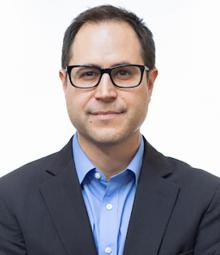 Adam R. Ferguson, PhDAssociate Professor and Principal Investigator,
Adam R. Ferguson, PhDAssociate Professor and Principal Investigator,
Weill Institute for Neurosciences
Brain and Spinal Injury Center (BASIC)
Department of Neurological Surgery
University of California, San Francisco (UCSF)
CNS injuries such as traumatic brain injury, spinal cord injury and stroke are complex, multifaceted disorders. This complexity poses a challenge for discovery, translation and precision medicine. I will review recent work from our team demonstrating the value of applied data science (data sharing/machine intelligence/analytics) for driving bench-to-bedside translation and clinical implementation of CNS injury research.
-
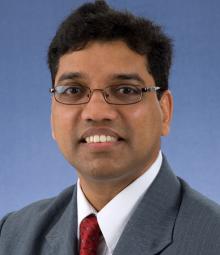 Dr. Ramana DavuluriDavuluriProfessor of Preventative Medicine
Dr. Ramana DavuluriDavuluriProfessor of Preventative Medicine
Health and Biomedical Informatics
Feinberg School of Medicine
Northwestern University
With each successive discovery in genetics the dynamic complexity of the gene structure and gene regulation have become increasingly apparent. It’s now understood that the majority of human genes produce multiple functional products, or isoforms, primarily through alternative transcription and splicing. Different isoforms within the same gene have been shown to participate in different functional pathways, and the altered expression of specific isoforms have been associated with numerous cancers. Consequently, transcriptome analyses based on gene-centric informatics methods; (a) may result in wasted resources in following up “leads” that cannot be replicated because they are false, (b) may result in missing important findings that should have been discovered, and most importantly (c) misinterpretation of the underlying biology.
In this talk, I will describe application of recent machine learning methodologies, some of which are based on “old ideas”, to account for the underlying splice- and transcript-variants. These informatics methods are illustrated using our recent published studies on platform-independent Informatics pipeline for molecular sub-typing of glioblastoma and ovarian cancers. I will also discuss our ongoing work on discovery of drug-target genes at isoform/splice-variant level.
-
 Dr. Mei-Hua HallAssociate Professor of Psychiatry
Dr. Mei-Hua HallAssociate Professor of Psychiatry
Harvard Medical School
Psychosis Neurobiology Laboratory
Synopsis: Psychotic disorders typically emerge in late adolescence or early adulthood, and affect approximately 2.5-4% of the population, making them one of the leading causes of disability worldwide. Up to 13% of psychiatric patients are readmitted shortly after discharge. Readmissions are disruptive for patients and families, and are a key driver of rising healthcare costs. In 2009 alone, the costs of readmissions of in psychiatric disorders had already totaled to be $832 billion.
Dr. Hall research focuses on using multimodal approaches to link patients’ neurobiological and clinical profiles with their functional recovery trajectories. The overarching goals of her research are to identify individuals with different functional recovery paths and to develop individually tailored and effective treatments. In this talk, she will present projects aiming to apply natural language processing (NLP) and machine learning techniques to extracts meaningful information from unstructured clinical narratives in patient’s electronic health records (EHR) and to create tools for evaluating and predicting psychosis patient readmission risk.
-
Thomas R. Clancy, MBA, PhD, RN, FAANClinical Professor, Ad Honorem
University of Minnesota School of Nursing
Minneapolis, MN -
Lisiane Pruinelli, PhD, RNAssistant Professor
University of Minnesota School of Nursing
Minneapolis, MN -
Jean F. Wyman, PhD, RN, APRN, GNP-BC, FAAN, FGSAProfessor and Cora Meidl Siehl Chair in Nursing Research
University of Minnesota School of Nursing
Minneapolis, MN
Synopsis: The OptumLabs Research Collaborative is a unique intra-professional, academic/industry partnership that provides researchers access to linked health insurance, electronic health record and consumer behavior data for over 200 million patient records. The University of Minnesota is one of the original members of the Research Collaborative which now includes 27 academic and professional organizations. Multiple University of Minnesota faculty have utilized the OptumLabs Data Warehouse (OLDV) for funded studies. The University of Minnesota School of Nursing acts as the support center for any University of Minnesota faculty member who desires to access the database for research purposes. This presentation will provide an overview of the Research Collaborative, current studies and demonstrate how faculty with or without an informatics background can use the OLDV to conduct research in large complex databases.
-
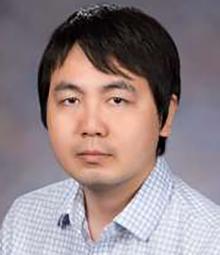 Dr. Jiang BianAssociate Professor of Biomedical Informatics,
Dr. Jiang BianAssociate Professor of Biomedical Informatics,
Director of Cancer Informatics and eHealth Core Programs,
University of Florida
Bio: Dr. Bian is currently an Associate Professor of Biomedical Informatics at the University of Florida, and the Director of Cancer Informatics and eHealth Core Programs for the UF Health Cancer Center. He has a diverse yet strong multi-disciplinary background in data science, semantic web and ontology, natural language processing, social media, network science, data privacy, eHealth and user-centered design, and software engineering.
Synopsis: This talk will discuss the importance of recognizing, using and integrating heterogeneous data sources in biomedical research, from precision medicine to precision public health to learning health systems.
-
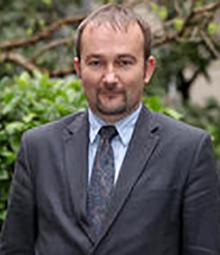 Alexander V. AlekseyenkoProgram for Human Microbiome Research
Alexander V. AlekseyenkoProgram for Human Microbiome Research
Biomedical Informatics Center
Medical University of South Carolina
Synopsis: Microbiome is a term used to describe the collection of all microorganisms that colonize our bodies. Whereas understanding the human genome has received enormous amount of attention in the last 20 years, the impact of host associated microbiome genomes (the metagenome) and their function in human health and disease is still in very early stages of being conceptualized. The recent surge in microbiome science has been afforded by increasing availability of technologies, such as high-throughput DNA sequencing, mass spectrometry, automated cell sorting, etc. Most notably, of course, the ability to sequence hundreds of individual microbiomes in a single run of a sequencing instrument has resulted in a perfect storm of microbial community profiling datasets addressing a vast array of biomedical questions. This presentation will motivate the need for microbiome specific data analytic techniques. I will highlight a few promising analytic approaches and elements of a general framework for integrating high dimensional host-microbiome data. I will also describe how informatics can accelerate microbiome research by simplifying research access to human microbiome specimens from clinically relevant patient populations via a Living µBiome Bank.
-
 Hongfang Liu, PhDProfessor of Biomedical Informatics, Mayo College of Medicine
Hongfang Liu, PhDProfessor of Biomedical Informatics, Mayo College of Medicine
Chair, Division of Digital Health Sciences
Director, Biomedical Informatics, Mayo Clinic Center of Clinical and Translational Science
Director, Clinical Natural Language Processing Program
Synopsis: On average, a patient generates 80 megabytes of imaging and EHR data each year. For a healthcare organization, this trove of data from patients has an obvious clinical, financial, and operational value. However, the value of big data in health care is only realized when this raw information is converted into knowledge that changes the practice. The next generation of healthcare delivery requires a team effort from data science, delivery science, and implementation science to ensure that the right patient receives the right care from the right provider at the right time and the right place. In this talk, I will discuss opportunities and challenges faced when bringing AI for healthcare illustrated through some of our ongoing efforts.
-
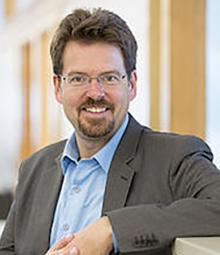 Sean Mooney, PhDProfessor, Department of Biomedical Informatics and Medical Education
Sean Mooney, PhDProfessor, Department of Biomedical Informatics and Medical Education
Chief Research Information Officer, UW Medicine
University of Washington
Synopsis: It is an opportune time to be engaged in the research and application of informatics in biomedicine. The increased use of electronic and personal health records and personal mobile devices is creating many opportunities at research academic medical centers. At the University of Washington, we are laying the ground work to build the informatics and information technology infrastructure to support research on personalized approaches, and we are beginning to see the early successes of these efforts. There are many challenges, for example, whole exome and whole genome sequencing is continuing to challenge researchers with a wealth of genetic variants of unknown disease effects. The genetic causes of penetrance and phenotypic expressivity often have no known molecular basis. In this presentation, I will discuss our support of data for research use within UW Medicine, our efforts to build new machine learning and data science approaches using clinical datasets, and our efforts to develop new methods to interpret human genome sequences. Further, we are leveraging the crowd by organizing and participating in community challenges (critical assessments) to build a better understanding of the types of approaches that perform well in genome interpretation and in what context. I will describe the newly founded Center for Data To Health (CD2H) and how we are facilitating informatics throughout the CTSA program nationally and how CTSA hubs can further engage the CD2H center.
-
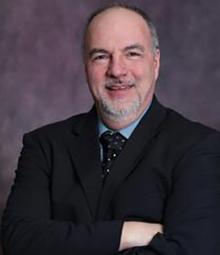 Marc WilliamsDirector, Genomic Medicine Institute
Marc WilliamsDirector, Genomic Medicine Institute
Synopsis: This talk will provide a brief overview of the terminology and philosophy of the emerging field of precision health followed by a presentation of the Geisinger Precision Health project, the MyCode Community Health Initiative. The focus will be on the information systems and informatic approaches needed to support a precision health program emphasizing the gaps and opportunities for implementation research.
-
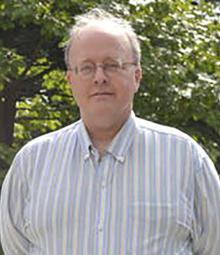 Joseph Ramsey, PhDSpecial Faculty
Joseph Ramsey, PhDSpecial Faculty
Director of Research Computing
Department of Philosophy Carnegie Mellon University
Bio: Dr. Ramsey earned his PhD in Philosophy at the University of California at San Diego, with an emphasis on Cognitive Science. He has worked on many grant-funded projects, beginning with work for NASA Ames on detecting carbonates in rocks using mineral spectra, using a causal algorithm, then on software for natural deduction, and several projects applying causal research to practical scientific problems in various domains, including cell biology, wildfire analysis, and causal analysis of fMRI time series, to give a few. Since 1998 he has been the lead developer on the TETRAD projects, an open source project for causal analysis, where he has designed and implemented many causal search algorithms, several of which have come to be used in the scientific community. He is currently on the Philosophy faculty at Carnegie Mellon University as Director of Research Computing, where he's been since 1998.
Synopsis: In this talk, a novel algorithm, FASK ("Fast Adjacency Skewness"), will be discussed, which addresses problems with skewed variables where there may be cycles arbitrarily situated throughout the model. The cycles may either be tight, involving only two variables, or longer cycles involving many variables. Some theory for the algorithms will be discussed, followed by applications to three different domains: (a) fMRI causal modeling, (b) single-cell cytology causal modeling, and (c) simulated diffusion and advection in climate models.
-
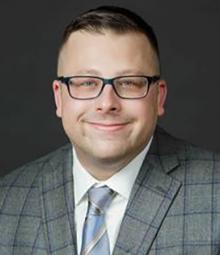 Matthew Breitenstein, PhDInstructor of Informatics Department of Biostatistics, Epidemiology & Informatics, Perelman School of Medicine, Senior Fellow – Institute for Biomedical Informatics (IBI), Senior Fellow – Center for Pharmacoepidemiology, Research & Training (CPeRT), University of Pennsylvania, Philadelphia, PA
Matthew Breitenstein, PhDInstructor of Informatics Department of Biostatistics, Epidemiology & Informatics, Perelman School of Medicine, Senior Fellow – Institute for Biomedical Informatics (IBI), Senior Fellow – Center for Pharmacoepidemiology, Research & Training (CPeRT), University of Pennsylvania, Philadelphia, PA
This talk will highlight translational informatics approaches for advancing precision medicine knowledge within the cancer control setting. Particularly, where insights obtained from multi-omic comparisons and reverse translation serve as a pivot for treatment personalization or advancing mechanistic/etiologic insights of disease. Scientifically, this talk will be focused within diffuse large B-cell lymphoma and systemic lupus erythematosus, a B-cell malignancy and autoimmune disorder, respectively, and overlapping targeted therapies. A novel pharmacogenomic determinant of response to rituximab identified using translational informatics approaches will be discussed in depth.